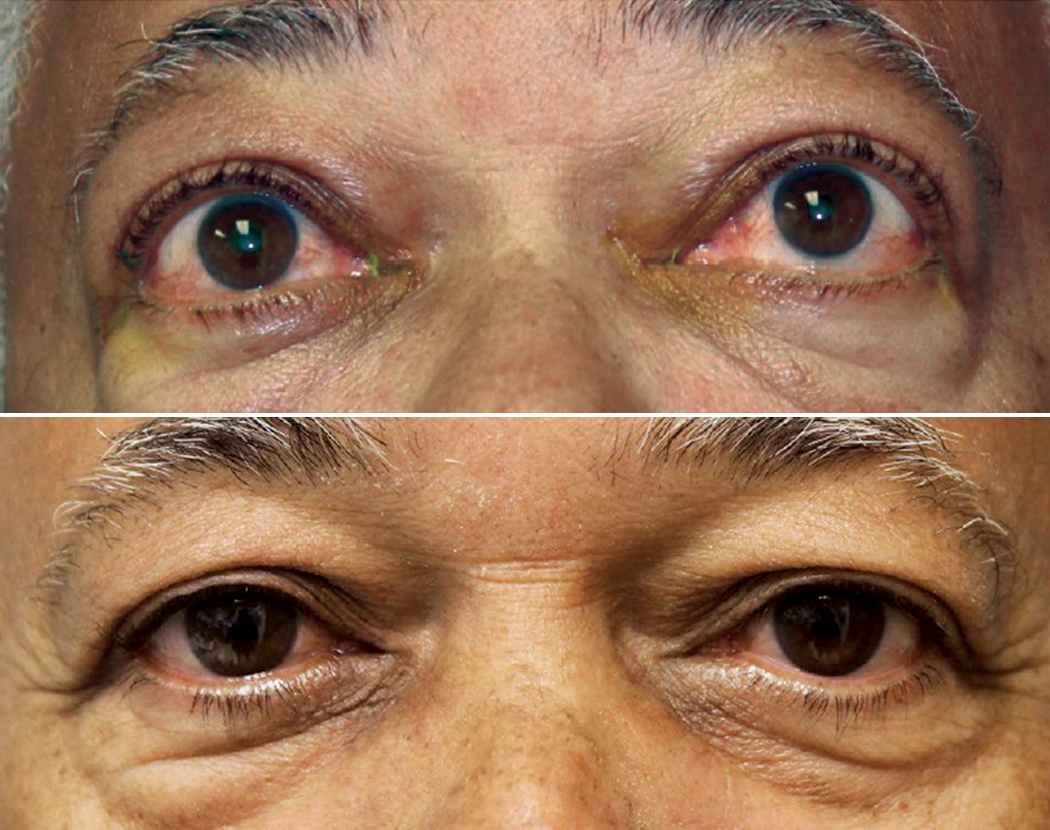 |
| A TED patient before (top) and after (bottom) treatment with Tepezza. Photo: Jacob Lang, OD. Click image to enlarge. |
It is not uncommon to see patients with thyroid eye disease (TED) present with proptosis and/or diplopia, two potentially debilitating symptoms that may even precede vision loss in severe cases. A common treatment recommendation for patients with moderate to severe active TED is a 12-week period of intravenous methylprednisolone therapy, though the accuracy of clinical trials has been somewhat jeopardized due to the inconsistency of variables such as dosage and timing of administration.
Another drug shown to improve TED symptoms is intravenous teprotumumab (Tepezza). A group of researchers recently put the performance of this prospective therapeutic up against methylprednisolone. The latter showed favorable results, with more patients experiencing improvement in proptosis and diplopia who were treated with teprotumumab instead of methylprednisolone.
The researchers selected 12 studies to review, all of which described relevant randomized controlled trials or observational studies on patients treated with either teprotumumab or methylprednisolone. The main outcomes of the analysis were “changes in proptosis by millimeter and diplopia response (percentage with one-grade reduction) from baseline to week 12 in patients receiving [methylprednisolone] and placebo and to week 24 in patients receiving teprotumumab.”
The data showed treatment with methylprednisolone was favored over placebo in terms of proptosis response, resulting in a difference of -0.16mm from baseline to week 12. However, proptosis treatment did favor teprotumumab over methylprednisolone, with a difference of -2.31mm in response rate between the two.
As for diplopia response, methylprednisolone treatment was not favored over placebo, but teprotumumab was favored over methylprednisolone.
“This meta-analysis suggests that use of methylprednisolone is associated with a small, typically not clinically relevant, change from baseline in proptosis vs placebo, with modest changes in diplopia,” the researchers conclude. They note that because this study was nonrandomized, randomized trials comparing the two drugs are warranted to confirm the superiority of teprotumumab over methylprednisolone in the treatment of proptosis and diplopia.
RS Douglas, Dailey R, Subramanian PS, et al. Proptosis and diplopia response with teprotumumab and placebo vs the recommended treatment regimen with intravenous methylprednisolone in moderate to severe thyroid eye disease. JAMA Ophthalmol. February 17, 2022. [Epub ahead of print]. |

